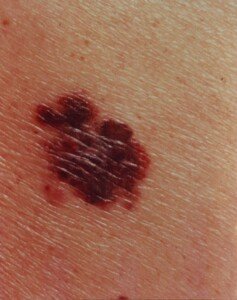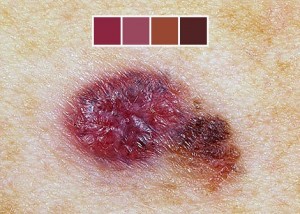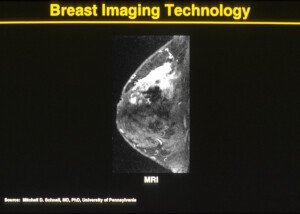
All advanced cancers are difficult to treat, but one of the most difficult metastases to manage is melanoma skin cancer.
Melanoma is one of the most difficult cancers to treat. However, researchers are closing in on this mystery.
The news is from UC Irvine’s Chao Family Comprehensive Cancer Center; researchers there have figured out a major reason why melanoma is so resistant to chemotherapy treatment and thus exceptionally hard to treat.
While melanoma is highly curable when caught early, says Mayoclinic.com, this cancer yields a very poor prognosis once it spreads, because historically, it evades chemotherapy so well.
The American Cancer Society says that once this disease spreads, the five-year survival rate is 15-20 percent.
Why is melanoma so hard to treat?

Laurence Meyer, MD. cancer.gov
There is a genetic pathway in this cancer that inhibits a cellular mechanism.
This cellular mechanism’s job is to detect damage to DNA. This DNA damage is caused by chemotherapy.
When the cellular mechanism fails, the melanoma cells build up a resistance or tolerance to chemotherapy — which is supposed to kill cancer cells. The researchers targeted this pathway.
The pathway consists of the genes RhoJ and Pak1. UCI dermatologist Dr. Anand Ganesan aims to figure out a way to shut off this pathway.
Dr. Ganesan explains that if the pathway is turned off, “melanoma tumors would suddenly become sensitive to therapies we’ve been using for the last 20 years.”
What exactly is RhoJ and why does this make melanoma so difficult to treat?
It’s a gene that’s involved in the growth of blood vessels. Dr. Ganesan’s team noted that RhoJ does something peculiar when a cancer cell gets hit with chemo drugs.
The gene activates Pak1, another gene. In the study, Pak1 then triggered a molecular chain reaction that suppressed the melanoma cell’s ability to “feel” the damage from the chemo drug.
Think of it this way: The cancer cell gets spanked, but can’t feel the spanking, so the spanking (chemotherapy) does no good. The objective is for the chemo drugs to cause melanoma cancer cells to commit suicide.
Well, they don’t because they don’t sense the drugs’ effect, and as a result, the melanoma cells run amok.
“Being capable of rapid adaptation and change is a hallmark feature of this challenging form of cancer and makes it very difficult to treat,” says Dr. Ganesan.
The team has discovered the why, but has not figured out how to make the spankings hurt (i.e., shut off RhoJ).
However, identifying the “why” is the first step in making melanoma easier to treat.
The researchers are now investigating methods that will suppress these wayward genes so that the cancer cells can sense the DNA damage from chemo.









































